A number of zero-carbon properties in British Columbia were recently recognized for showing leadership in reducing carbon pollution from their component materials and during construction.
The inaugural BC Embodied Carbon Awards was held in Vancouver and hosted by the Carbon Leadership Forum British Columbia (CLF British Columbia), which is a program area of the Zero Emissions Building Exchange (ZEBx).
Over 25 organizations sent in entries with awards in five categories.
Small and large projects were recognized as well as organizations and municipalities that are committed to reducing embodied emissions.
In the Small Buildings (Vancouver) category, Third Space Commons, by Third Quadrant Design, is a project on the University of British Columbia campus that reuses materials from a deconstructed single-family house.
Small Buildings (B.C.) – Inlet View, by Carbon Wise, is a single-family house that achieved BC Step Code Five.
Large Buildings (Vancouver) – 365 Railway, by Perkins&Will, is a mass-timber addition to a two-storey concrete building that was built in 1949.
Large Buildings (B.C.) – Discover Montessori Farm School, by Checkwitch Poiron Architects Inc., is a farm school where the most carbon-intensive forms of construction were replaced.
Commitment to Change (Public, not-for-profit organizations) – The City of Nelson commissioned a benchmarking report and offers low-carbon home consultations to builders and designers.
Commitment to Change (Private organizations) – EllisDon Corporation has developed an action plan to assess its emissions and has joined the Science-Based Targets initiative.
Amy Brander, sustainable building adviser at Perkins&Will, said the firm and its client Allied Properties REIT are “extremely proud and overjoyed” at winning the large buildings award for Vancouver.
“365 Railway is a four-storey office addition to a two-storey historic building called Fleck Brothers Warehouse,” said Brander. “The warehouse structure will be preserved as closely as possible to its original form to reduce embodied carbon.
“This aligns with Perkins&Will’s desire to add value to our existing building stock, and to prevent the endless cycle of demolition and new construction.”
The Discover Montessori Farm School is located just west of Nanaimo.
“I’m very glad to see a project like this win an award,” said Ben Checkwitch, owner and principal of Checkwitch Poiron Architects.
“We had only a small budget, but we were able to hit the carbon criteria for the project anyway, proving they are achievable without a lot of money. Our goal is to reduce embodied carbon emissions by 42 per cent, and we’re working towards that now.”
Checkwitch expects the school to be completed at the end of August in time for back-to-school in September.
Natalie Douglas, climate resilience planner for the City of Nelson, also express gratitude for being recognized.
“I’m incredibly humbled and honoured that Nelson was selected as a winner,” said Douglas, adding Nelson has started to apply the lessons of its low-carbon research.
“We are currently offering free embodied carbon consultations to all building permits,” she said. “We want to encourage the reduction of embodied carbon emissions through material substitutions, reuse and structural change.”
Jolene McLaughlin, vice-president, climate and sustainability at EllisDon, which won the Commitment to Change (private organization) award, said, “We’re really excited. Winning is a great opportunity to showcase our work in Vancouver.”
EllisDon has signed onto the Science-Based Targets initiative (SBTi), committing to set verifiable standards that pledge to reduce emissions consistent with limiting global warming to 1.5°C.
SBTi shows organizations how much and how quickly they need to reduce their greenhouse gas emissions to prevent the worst effects of climate change.
Caroline Butchart, CLF BC program manager at ZEBx, said, “The winners prove that our climate goals are achievable when we put our minds to it.”
Embodied carbon emissions are produced by making, transporting and disposing of construction materials and equipment over a building’s lifetime.
In B.C., embodied carbon can make up as much as one-half of a property’s total carbon footprint.
The City of Vancouver has set a goal of reducing embodied carbon in new buildings by 40 per cent by 2030.
Starting in July, the city will require developers to calculate and report embodied carbon in all their new projects.
“Vancouver has been developing its embodied carbon modelling guidelines and is finalizing the reporting methods now,” said Butchart. “The guidelines include a reporting template that will need to be completed and submitted with a building permit submission.”
The next BC Embodied Carbon Awards takes place in March 2024. Nominations will be open from October 2023 to January 2024. Where to send nominations will be announced on the CLF website.



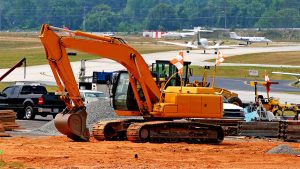
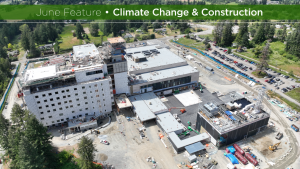
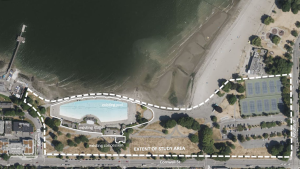
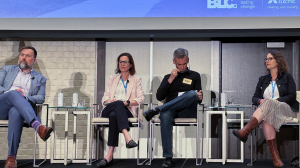

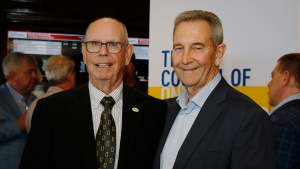


Recent Comments